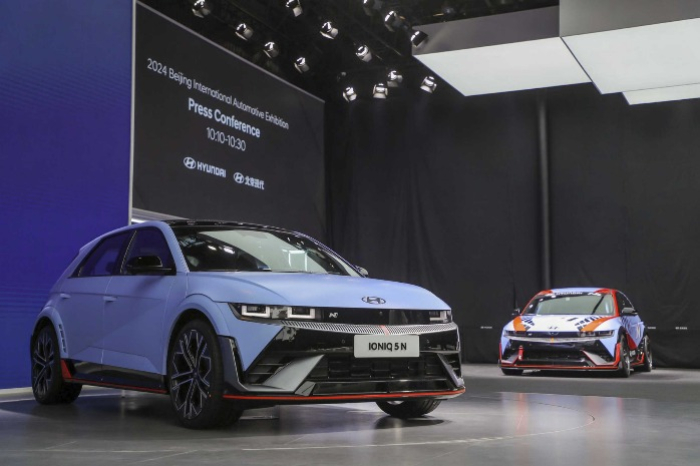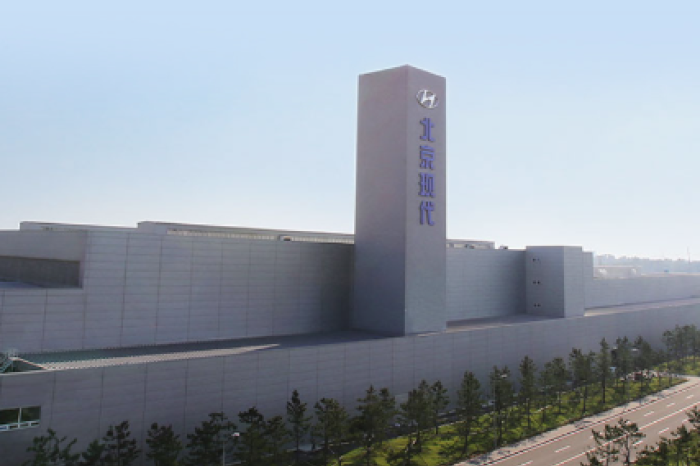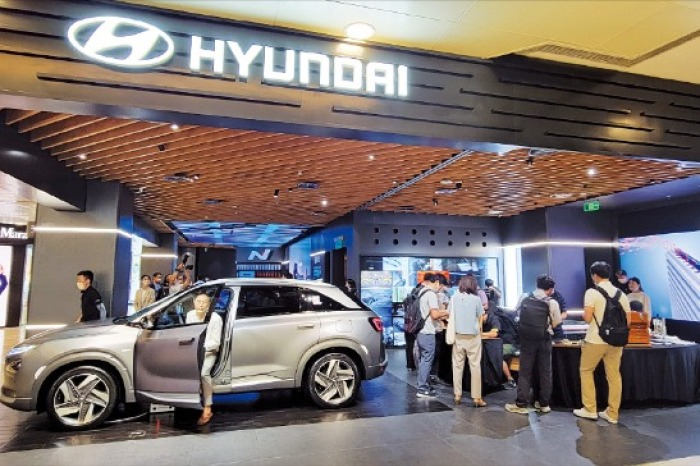
Hyundai Motor Co. and its Chinese partner Beijing Motor Corp. (BAIC) will jointly invest about $1.1 billion in their joint venture, which produces and sells Hyundai cars in China, to help the Korean car brand regain ground in the world’s largest car makers with electrification.
BAIC said in a statement on Tuesday that the investment in Beijing Hyundai Motor Co., its 50-50 joint venture with Hyundai Motor in China, will be used to develop products tailored to Chinese consumer demands and boost exports from the JV to international markets.
The $1.1 billion investment, which will be equally split between the two partners, will bump up their JV’s total registered capital to $4.07 billion, according to Beijing government-controlled BAIC’s filing.
Their stake will remain unchanged.
It did not disclose the time for the investment but they are expected to inject new fund in the first half of next year, according to industry sources.
The investment comes nearly a year after the two partners announced a plan in January to team up to debut a new China-only electric vehicle brand through the JV.
HYUNDAI’S STRONG COMMITMENT TO CHINA
The plan was part of Hyundai’s green car push in China announced in June last year to introduce five new eco-friendly cars, including hybrid EVs, in phases starting in 2026.

Next year, Hyundai Motor also plans to debut its first China-dedicated EV model.
The Korean auto giant’s two research and development centers in China – one in Yantai and the other in Shanghai – are in charge of developing future mobility technologies including electrification.
With the new investment, Hyundai Motor is expected to enhance its capability to develop future car technologies and accelerate its electrification in China, a key to recovering its lost market share in the world’s No. 1 car market, also the world’s largest EV market.
Hyundai Motor’s car sales in China plunged to 257,000 units in 2023 from its peak of more than 1 million units in 2016.
During that time, Chinese car makers focused on EV development under the government’s nationwide drive to foster the EV market as the country’s key industry.
China shipped a total of 4.9 million cars abroad in 2023, of which 1.2 million units were eco-friendly cars including EVs, hybrids and hydrogen cars. It was a 77.6% jump from the previous year.

Last year, China’s BYD Co. became the global top EV seller, beating Tesla Inc.
AN EXPORT HUB
With the new fund, Hyundai Motor will also speed up its plan to transform Beijing Hyundai Motor into an export hub to overseas markets to offset dwindling local sales.
The Korean carmaker’s exports from its Chinese operations are said to have exceeded 10,000 units in 2023 for the first time.
Its exports from China are expected to reach 50,000 units this year with more diverse car models. It is also said to have set a target to nearly double the figure next year, according to sources.
Following the sale of two car factories in China, Beijing Hyundai Motor currently operates three plants with a combined production capacity of 1.05 million units.
By Jung-Eun Shin
newyearis@hankyung.com
Sookyung Seo edited this article.















